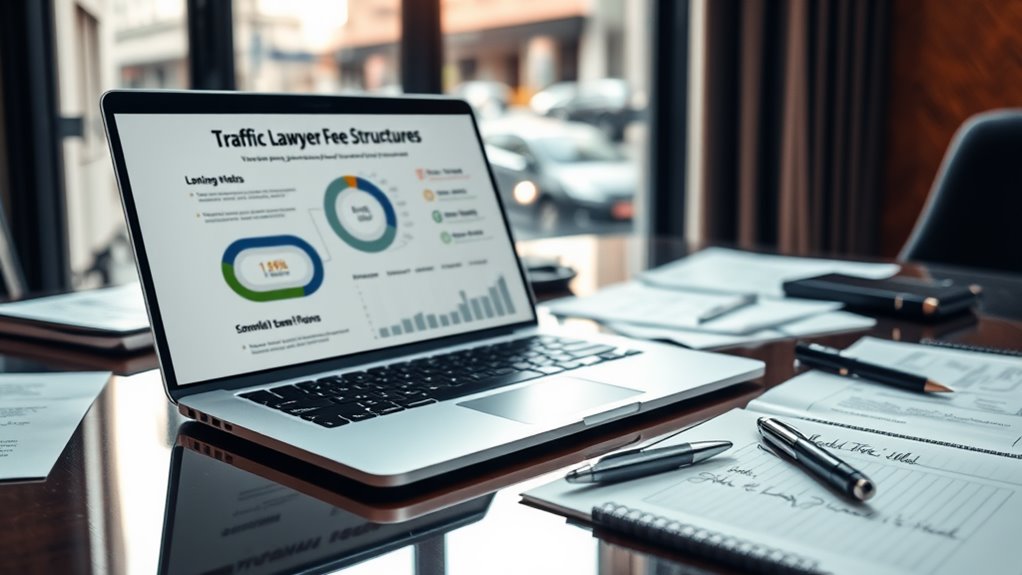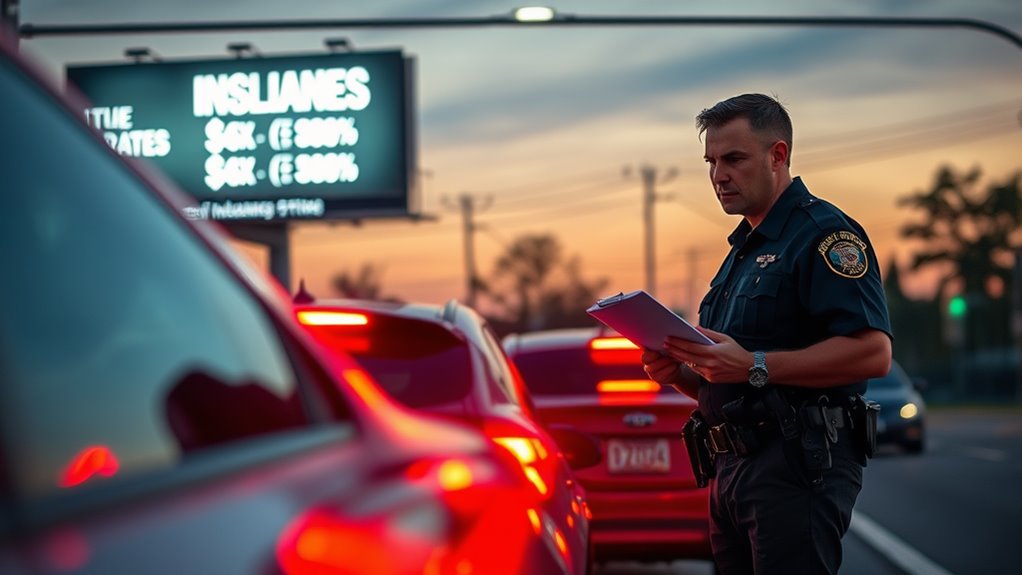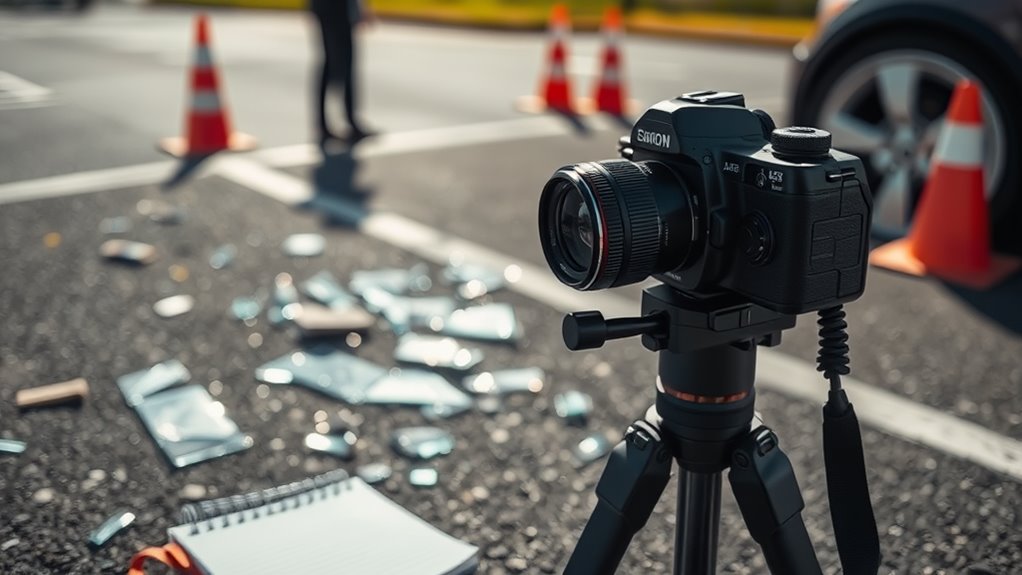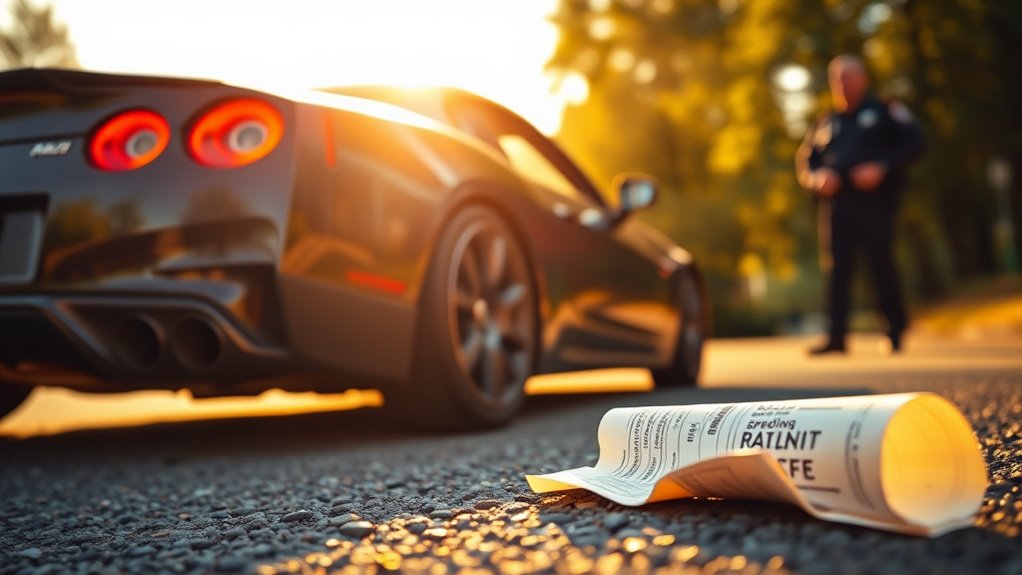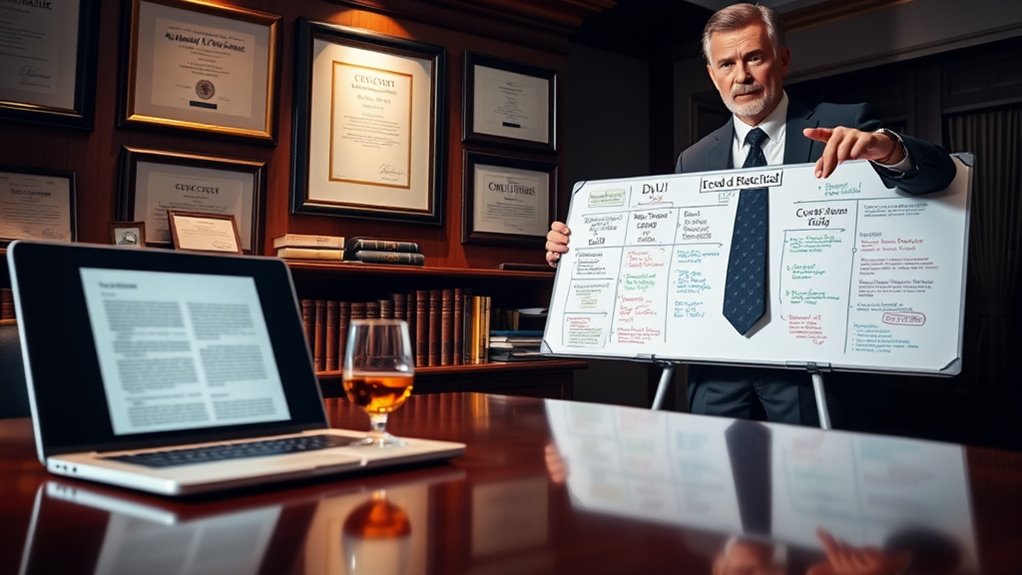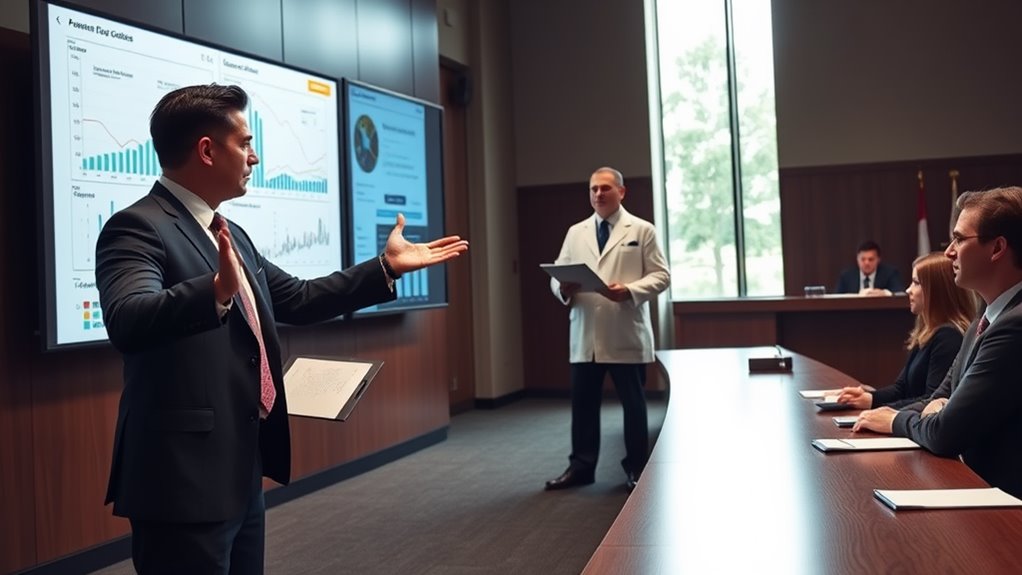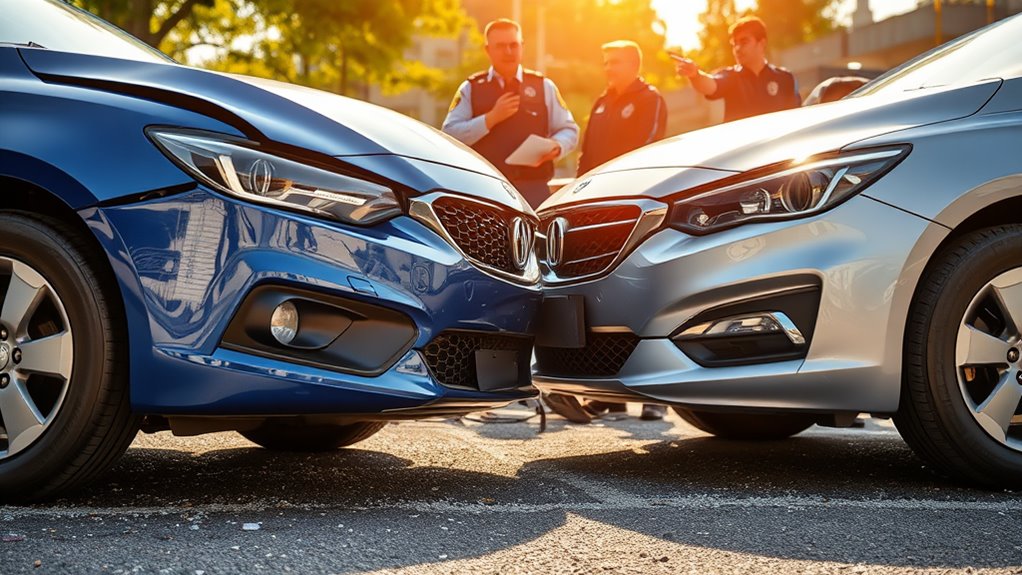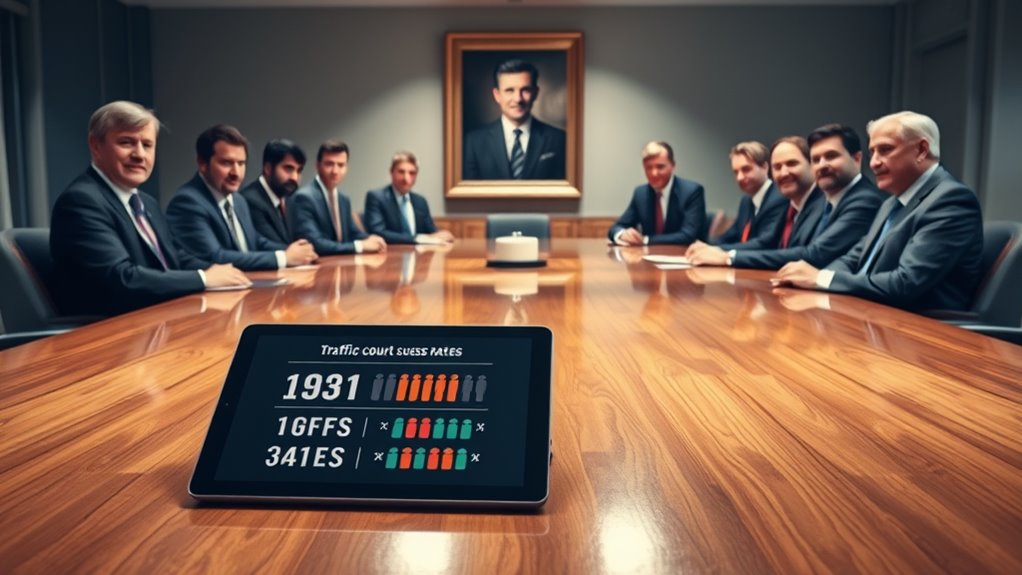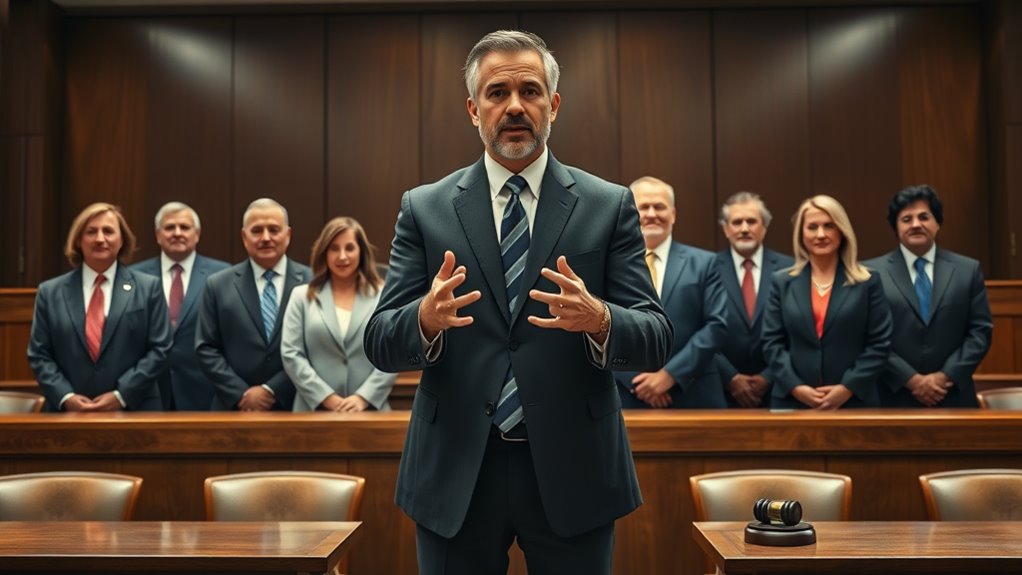When facing traffic court, having the right attorney can make a significant difference in your case's outcome. The top 10 attorneys highlighted here bring a wealth of experience, specialized knowledge, and proven strategies to the table. From experts in criminal defense to advocates with local insights, these professionals can navigate the complexities of traffic law effectively. Understanding their unique strengths can help you make an informed choice for your representation. What qualities should you prioritize in your selection process?
Key Takeaways
- Look for attorneys with specialized expertise in traffic law, such as Adam Solinger and Naomi Andrea Muhamed, for effective representation.
- Consider attorneys with courtroom experience and proven success in traffic cases, like Richard Davies, to enhance your chances of a favorable outcome.
- Choose lawyers who offer personalized consultations and clear communication, ensuring you are informed throughout the legal process.
- Seek attorneys with local expertise in traffic regulations, like those familiar with Reno traffic court, for tailored legal strategies.
- Evaluate pro bono services and community involvement, which demonstrate an attorney's commitment to justice and accessibility in legal representation.
Adam Solinger: Expert in Criminal Defense and Traffic Violations
Adam Solinger stands out as a leading expert in criminal defense and traffic violations, showcasing a robust understanding of Nevada's legal landscape.
With a background practicing law in both Nevada and Colorado, he earned his education from UNLV William S. Boyd School of Law and the University of Redlands.
Recognized as a 2023 Mountain States Rising Star by Super Lawyers, he excels in negotiating charge dismissals and reductions.
His experience with the Nevada Attorney General provides him valuable insight into prosecution strategies. This background allows him to effectively navigate traffic laws that can often be complex and challenging.
Solinger's expertise in maneuvering through traffic laws allows him to challenge unjust citations effectively. Additionally, his firm emphasizes personalized consultations to ensure effective case handling for clients.
Naomi Andrea Muhamed: Skilled Advocate in Traffic Court Cases
Naomi Andrea Muhamed has quickly established herself as a skilled advocate in traffic court cases, building on the strong foundation laid by her education at UNLV's William S. Boyd School of Law.
Graduating in 2021, she excelled academically, earning High Pro Bono Honors and making the Dean's List.
As an associate attorney at Las Vegas Defense Group, Naomi specializes in criminal law, particularly handling cases involving traffic tickets and suspended licenses.
Her prior experience at the Clark County Public Defenders Office enhances her litigation skills.
Engaging in pro bono work, she demonstrates a commitment to community service.
With free consultations available, she's dedicated to providing accessible legal representation for clients maneuvering through the complexities of traffic court.
Richard Davies: Trial-Tested Attorney for Traffic Offenses
With over a decade of experience in criminal law, Richard Davies has built a reputation as a trial-tested attorney specializing in traffic offenses.
His extensive background includes handling a wide range of cases, from minor traffic tickets to complex DUI and DWI defenses.
Richard's proven track record in courtroom settings showcases his ability to effectively navigate the intricacies of traffic laws and penalties in Nevada.
His advanced legal training, including participation in intensive trial programs, equips him with the skills necessary to advocate for clients facing serious traffic violations.
As a licensed member of the Nevada State Bar, Richard is well-versed in local legal proceedings, making him a formidable ally in your traffic court case.
Paul R. Wolfe: Former Police Officer With Traffic Law Expertise
Paul R. Wolfe brings a unique perspective to traffic law, thanks to his extensive background as a former police officer.
With over 15 years in the criminal justice system, he's equipped to navigate the complexities of traffic court effectively.
Here's what sets him apart:
- In-depth knowledge of police procedures and enforcement protocols.
- Specialized training as a drug recognition expert and DUI enforcement officer.
- Proven success, recognized as one of the National Trial Attorneys' Top 100 Trial Attorneys.
- Diverse practice areas, encompassing DUI, traffic tickets, and personal injury claims.
His thorough understanding of both sides of law enforcement makes him a formidable ally in traffic court, ensuring you receive highly skilled representation.
Terry Jones Zach: Specialized Defense for Traffic Tickets
When facing traffic tickets, having an attorney like Terry Jones Zach can make a significant difference in your defense.
With over 17 years of legal experience in Clark County, Terry specializes in traffic law, ensuring a thorough understanding of complex regulations. His expertise covers various traffic violations, including suspended licenses, and he navigates the court process effectively across all jurisdictions.
Clients praise his aggressive defense strategies, communication skills, and commitment to professionalism. He offers a free initial consultation and flexible payment plans, making legal assistance accessible.
Clients commend Terry's strong defense tactics, clear communication, and professionalism, along with free consultations and flexible payment options.
His reputation for securing successful outcomes and maintaining client loyalty showcases his dedication to achieving the best possible results for you. Trust in Terry's specialized knowledge to guide you through the legal process.
Matthew Hoffmann: Personal Injury and Traffic Law Advocate
Matthew W. Hoffmann is a distinguished attorney in Las Vegas, specializing in personal injury and traffic law.
With a solid foundation in defending medical malpractice and negligence cases, he adeptly handles traffic-related personal injury claims. His reputation as an AV Preeminent rated litigator highlights his dedication and skill in this field.
Here are four key aspects of Hoffmann's practice:
- Expertise in managing complex traffic accident cases.
- Active representation of clients against transportation companies.
- Proven litigation strategies honed through years of practice.
- Community involvement, including serving on the Board of Trustees for Journey Education.
Hoffmann's commitment to advocacy and client representation makes him an essential resource for those facing traffic-related injuries.
Seth Strickland: Renowned for Effective Traffic Court Strategies
Seth Strickland stands out in the legal landscape for his effective strategies tailored specifically for traffic court. His expertise in criminal defense, coupled with a J.D. from the William S. Boyd School of Law, equips him with a detailed understanding of legal nuances.
Strickland employs targeted strategies, focusing on persuasive negotiations that often lead to reduced charges or case dismissals. He prioritizes clear communication, ensuring you're informed and comfortable throughout the process.
His thorough pre-trial preparation, including evidence gathering, enhances credibility in court. Strickland's commitment to individualized approaches reflects his understanding that each case is unique.
With a proven track record of success, he consistently delivers results that protect clients' rights and promote their well-being.
Garrett Ogata: DUI Defense Specialist With Traffic Case Experience
Garrett Ogata is a highly regarded DUI defense specialist with extensive experience in handling traffic cases. Based in Las Vegas, he's not only licensed in Nevada, California, and Utah but also boasts over 20 years of legal expertise.
His focus on DUI defense includes:
- Successfully managing over 2,200 DUI cases.
- Reducing or dismissing charges for numerous clients.
- Helping clients navigate personal injury claims related to traffic incidents.
- Providing flexible payment options to accommodate various financial situations.
Garrett's commitment to client satisfaction is evident through his high Avvo rating and numerous accolades.
His approach emphasizes clear communication, ensuring you remain informed throughout your case. With his extensive background, you can trust him to advocate effectively on your behalf.
William J. Routsis: Dual Practice in Nevada and California Traffic Law
William J. Routsis is a prominent attorney specializing in traffic law, licensed to practice in both Nevada and California. His legal education at the McGeorge School of Law complements his extensive trial experience in state and federal courts, where he handles a range of criminal defense cases, including DUIs.
Routsis's dual-state practice allows him to navigate the intricacies of traffic law across different jurisdictions effectively. Known for his aggressive representation, he's built a solid reputation for achieving favorable outcomes for clients.
His commitment to justice extends beyond the courtroom, as he provides pro bono services to those affected by socioeconomic disparities, ensuring fair legal representation for all individuals.
Sean Neahusan: Local Expertise in Reno Traffic Court Matters
In the domain of traffic law, having an attorney with local expertise can greatly impact the outcome of your case. Sean Neahusan offers a wealth of knowledge and experience in Reno traffic court, having navigated these complex matters since 2008.
His proficiency includes:
His proficiency encompasses local traffic regulations, negotiation strategies, case dismissals, and unwavering client support.
- Understanding local traffic regulations and legal processes.
- Familiarity with the Washoe County District Attorney's office, enhancing negotiation efforts.
- Proven success in achieving case dismissals and reduced penalties.
- Commitment to clear communication and client satisfaction throughout your legal journey.
With his background as a former prosecutor and ongoing community involvement, Neahusan's tailored legal services guarantee you receive informed representation.
His dedication to protecting your rights makes him a reliable choice for traffic-related legal issues.
Conclusion
Choosing the right attorney for your traffic court case might feel like picking the best lifeguard at a desert oasis. While you may think all attorneys are the same, the top 10 experts listed here bring unique skills and insights to the table. With their extensive knowledge and proven strategies, they can turn a potential disaster into a manageable situation. Don't underestimate the power of a skilled advocate—they can make all the difference when guiding through the twists and turns of traffic law.
